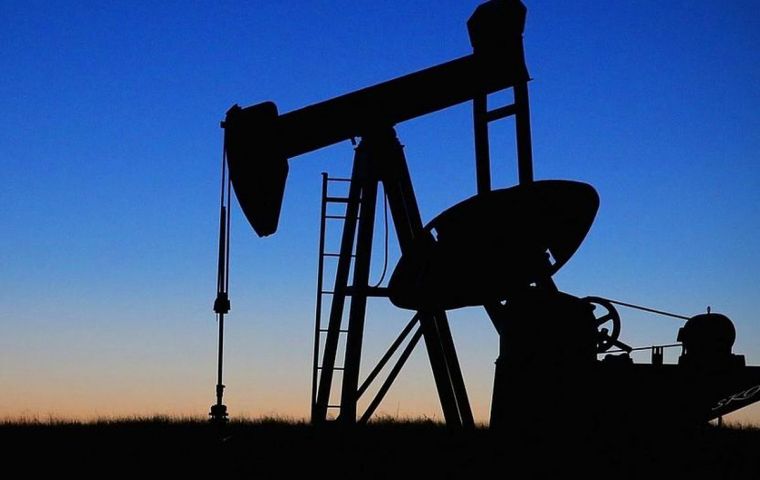MercoPress. South Atlantic News Agency
Hydrocarbons: Argentina going up as world goes down
 Mellano said that “we still have 30 more years of a world dependent on hydrocarbons and only in 2050 would the true decline begin.”
Mellano said that “we still have 30 more years of a world dependent on hydrocarbons and only in 2050 would the true decline begin.” The University of Buenos Aires (UBA)'s Gas and Petroleum Institute Director Aníbal Mellano said in an interview published Sunday in the Ambito Financiero newspaper that his country was “in an ascending cycle, within a descending world cycle for hydrocarbons.”
Mellano added that “the world is going to phase out coal in favour of gas in the next 20 or 30 years, there is no other alternative” and therefore “the path to renewable energies must be maintained and promoted so that it does not fall, but it is not as fast as we would like.”
The scholar explained that “the best combination is to eliminate coal and use gas, which is one of the fundamental developments in Vaca Muerta, South Santa Cruz and offshore off Tierra del Fuego. The other way is the transition to less-polluting liquid fuels.”
But regarding the near future, he said that “we still have 30 more years of a world dependent on hydrocarbons and only in 2050 would the true decline begin, with different stages in each country.”
In his view, “Argentina is one of the countries that is most hooked on the gas-based transition. We hardly consume coal and it is an advantage in our favour, but we also advance with other renewable energies.”
Mellano sees Argentina has potential in this field, because “Brazil did not find as much gas as it did offshore oil,” then “the gas from Bolivia is not so much, although with the decline of Loma La Lata, with Brazil and Chile that had no gas at all, Bolivian gas and that of Peru in the region ... the true backup is in Argentina,” he insisted.
The expert also highlighted the approach by the United States at gas production and explained Argentina was far behind. “The consolidated experience is the work in the United States, which was done with fortunes of money from the State.” Their current situation “is the result of having tens of thousands of wells built in recent years, with many subsidies from the State. We need to get to that,” he added.
Mellano also explained that investments in developments such as Vaca Muerta from private companies -which could in fact afford it- is not that easy to obtain, because of the uncertainty of how long it can be profitable. “The oil industry is risky,” he said. But large oil companies are financially stronger than most banks, he added. “In general they do not get into debt.”
In other words, larger investments are needed and not many givers are around. “When the oil companies have the resource and the market, a lot of financing offers to appear. The private sector should focus on handling reliable data and not putting together fictitious stories or accounts for five wells. They must propose to make an appropriate risk investment, as some companies have already done to experiment with the Argentine shale. They must bring the best and largest amounts of options to establish which is the most appropriate strategy.”
Mellano finally called for Argentina to pick up on the tradition of General Enrique Mosconi and the state-run YPF oil company to capitalize on what is one of the world's undeniable needs: energy. For which “the state must have plans.”
(Source: Ambito Financiero)




Top Comments
Disclaimer & comment rulesCommenting for this story is now closed.
If you have a Facebook account, become a fan and comment on our Facebook Page!